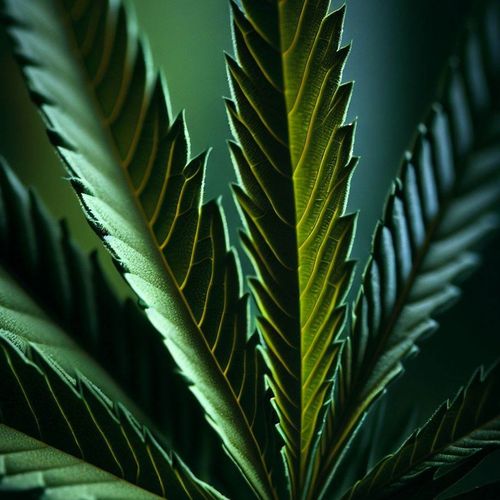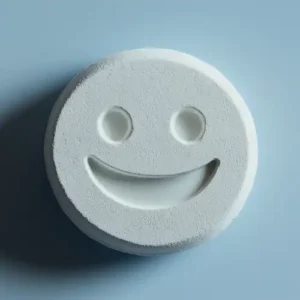Cannabis, also called marijuana or weed, has been a hot topic for years now. The UK labels cannabis as a Class B drug, making it against the law to have, give out, or make for any reason. The UK splits drugs into three groups: A, B and C. Class A drugs are the most risky, while Class C drugs are seen as the least dangerous.
In 2009, the UK government decided to keep cannabis as a Class B drug. They made this choice even though the Advisory Council on the Misuse of Drugs (ACMD) suggested to lower it to Class C. The ACMD believed cannabis didn’t threaten public health. They also thought the police could use their time and money better on other things.
But the government didn’t agree with this advice. They kept cannabis in Class B. They worried about how the drug might harm people, especially young ones. Research shows cannabis can hurt mental health in young users. It can also lead to addiction.
Even though it’s against the law, many people in the UK smoke cannabis. The Home Office did a study that found more than 7.2% of grown-ups between 16 and 59 said they’d used cannabis in the last year. Young folks use this drug the most, with over 20% of 16 to 24-year-olds saying they’d smoked cannabis in the past year.
The UK government wants to tackle cannabis use through teaching and law enforcement. They’ve started several programmes to tell people, especially young ones, about the dangers of smoking cannabis. Police have also stepped up their game to stop people from growing and selling cannabis.
Despite these efforts, people still worry about how the drug affects public health and the justice system. Some say that labelling cannabis as a Class B drug doesn’t work well. This label leads to more young people getting in trouble with the law and puts pressure on the police.
In the past few years, people have asked the UK to think again about how it handles cannabis. The ACMD has once more suggested that cannabis should be a Class C drug. They think this change would allow more focus on bigger drug problems. More people also want to make cannabis legal. They say this would cut down on the bad things about the drug and bring in money for the government.
The Medical Cannabis Conundrum
The UK faces a tricky situation with recreational cannabis use, but another complicated issue has popped up: medicinal cannabis. In November 2018, the UK didn’t legalise cannabis-based medicines, but it did tweak the law to allow specialist doctors to prescribe certain cannabis-based products for medicinal use (CBPMs) in specific cases.
But don’t get too excited – it’s not a free-for-all. These specialist doctors are treading carefully, prescribing CBPMs only when other treatments haven’t worked. It’s as if these prescriptions are rarer than hen’s teeth!
Why be so careful? It’s a chicken-or-egg problem. Cannabis has been illegal for a long time, so there’s not enough research. And it’s been illegal because we don’t have enough research. Talk about going in circles!
Still, some patients can’t stop talking about how cannabis might help . From epilepsy to long-lasting pain, CBPMs are making waves in medicine. But the NHS is taking its sweet time stuck between possible good points and old worries.
So, what should a Brit do? Unless you’re among the rare few who qualify for a CBPM prescription, it’s wise to avoid it. After all, nobody wants to get into trouble with the law just for trying to relieve their discomfort.
Cannabis Drug Testing Kits
Cannabis drug testing kits detect cannabis in a person’s body. Employers, police, and parents use these kits to check if people around them take the drug. These kits come in many forms, but they all work the same way: they look for THC, the main active ingredient in cannabis.
The urine test stands out as a used cannabis drug screening method. This process requires collecting a urine sample from the individual undergoing the test and examining it to detect THC. You can perform a urine test in various settings such as a doctor’s office, a lab, or even at home using a kit from a chemist. Urine tests are known for their high accuracy among drug tests, with the ability to detect cannabis use for up to 30 days, depending on how much the person uses.
Urine drug screens have the ability to spot one drug or multiple drugs in a single test. A common example of a single drug screen is the cannabis-specific test offered by Zoom Testing.
A different kind of cannabis drug testing kit is the saliva test. This method involves getting a saliva sample from the person under examination and checking it to see if THC is present. The saliva test isn’t as intrusive as the urine test and people can do it quickly and without hassle at home or in a doctor’s office. But the saliva test can spot cannabis use for only a couple of days, while a urine test can detect it for a much longer time.
Blood tests also detect THC in a person’s body. But doctors don’t use them as often as urine and saliva tests. They’re harder to do and need a trained medical expert to carry them out. Blood tests cost more than urine and saliva tests too. Plus, they can spot THC for a short time – from a few hours to a couple of days.
People have argued about cannabis drug testing kits since they first came out. Those who back them say we need these tests to keep workplaces safe or to stop kids from using drugs. Those against them say these tests invade privacy. They also worry about false positives or unfair treatment of people who use cannabis as medicine.
To wrap up, cannabis drug testing kits serve to detect THC in a person’s body. The most common types of drug tests include urine tests, saliva tests, and blood tests. These tests have their pros and cons, but they all aim to make sure people around us stay safe and free from drugs.
Photo by Zoom Testing
Zoom Testing is a leading UK drug testing company and a supplier of Drug Test Kits.
This post was originally published in 2023. It was last updated in September 2024.





